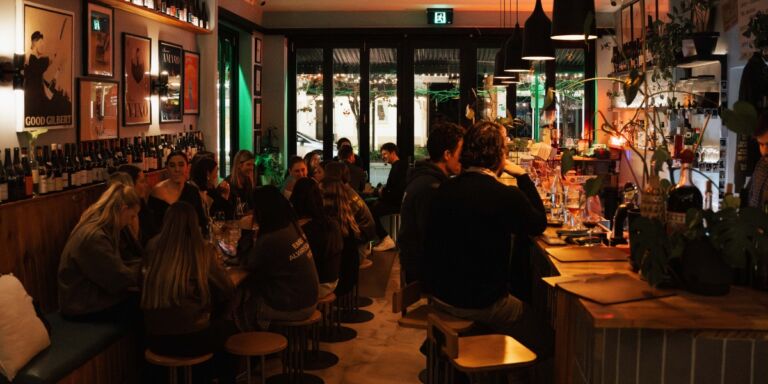The year 1805 was a terrible time to be a Champagne maker. Napoleon’s warmongering was ruining the economy, the weather (and therefore, the wine) was awful and François Clicquot (Tom Sturridge), young scion of a Verzy wine estate, was clearly unwell. It is no spoiler, given the film’s title, to recount that he didn’t make it to 1806 but Widow Clicquot’s many flashbacks ensure that we are not deprived of his histrionic presence, declaiming his love, for his new wife Barbe-Nicole Ponsardin (Haley Bennett) or for his vines, or descending into what today we call mental illness. It is a matter of record that his widow (veuve, in French), just 27 when he died, courageously overcame his death and the disbelief of everyone around her to make Veuve Clicquot the success it is today.
But historical records don’t make mass entertainment. In this interpretation, released in the UK at the end of August, Nicole has the assistance of handsome wine merchant Louis Bohne (Sam Riley) and the hostility of most of the other men in the story, from her father-in-law Philippe (Ben Miles) to the rapacious neighbouring Moëts, thirstily eyeing her vines. Like her deceased husband, none of them has any intention of leaving her to make her Champagne in peace.

Widow Clicquot is well produced (by Joe Wright, of Pride and Prejudice fame) and as full of stars as the Champagne that the monk Dom Pérignon supposedly discovered; it also has the same relationship to history as that doubtful legend and an unstoppered sentimentality that does several injustices to one of Champagne’s greatest innovators. There is no question here that the death of young François Clicquot was suicide, although the historical record is less sure: the official cause was typhoid. But it seems unlikely that he would have made the extraordinary success of the business that Nicole did, despite the monumental disadvantage of her sex: if you had brains and determination, 1805 was also a fairly terrible time to be a woman.
Haley Bennett does a good job of portraying quiet determination but her round-faced sweetness feels a long way from the steel guts that Barbe-Nicole must have had
The trouble is that the script is so fixated on this that it ignores a great deal else, including what, exactly, Nicole is famous for. Yes, she sold Champagne to the Russians as soon as she was able: Bohne smuggled the bottles to Amsterdam to await the end of the Napoleonic Wars. True, she tamed the ‘frog’s eye’ bubbles that marred her era’s Champagne, which sometimes foamed like toxic waste. And of course, by all accounts, she made an extraordinary cuvée in 1811, the ‘year of the comet’ – one that may have saved the business.

But 1811 Clicquot Champagne was partly so successful because Nicole had hit on a way to remove the lees from the finished wine: remuage, or riddling – a process so fascinating and so intimately tied to the history of the region’s wine that there are, today, plenty of Champagne Houses sporting wooden pupitres in their cellars who prefer not to mention that modern riddling is done almost entirely mechanically, by gyropalette. Call me a grumpy feminist or a discontented wine geek, but I feel that the invention of this unlikely method really should be a bigger part of the film.

Widow Clicquot, based on a bestselling book by Tilar Mazzeo, is fun to watch: well-acted, swift moving and easy on the eye. Director Thomas Napper has made the most of the mist-wreathed vineyards, candlelit cellars and array of good-looking stars. Riley in particular peps things up every time he gallops in: his admiration for Nicole’s abilities feels natural and his charisma has the effect of a welcome glass of fizz at a slightly dull party. But the dialling down of the Champagne-making process has the unintended effect of giving him a great deal of narrative power: off he gallops again, for off-screen acts of derring-do, while the little woman sits at home, twiddling vials of wine.
Haley Bennett does a good job of portraying quiet determination but her round-faced sweetness feels a long way from the steel guts that Barbe-Nicole must have had. And a film that spends its time marvelling that a woman managed to make a success of a business in a man’s century feels a little too close to the kind of male scepticism that caused her problems in the first place. Never mind: a film is not a history lesson. Widow Clicquot is a very enjoyable watch. Just don’t expect to learn much about the fascinating history of Champagne.
Widow Clicquot is available to stream now via Apple TV and Amazon Prime








